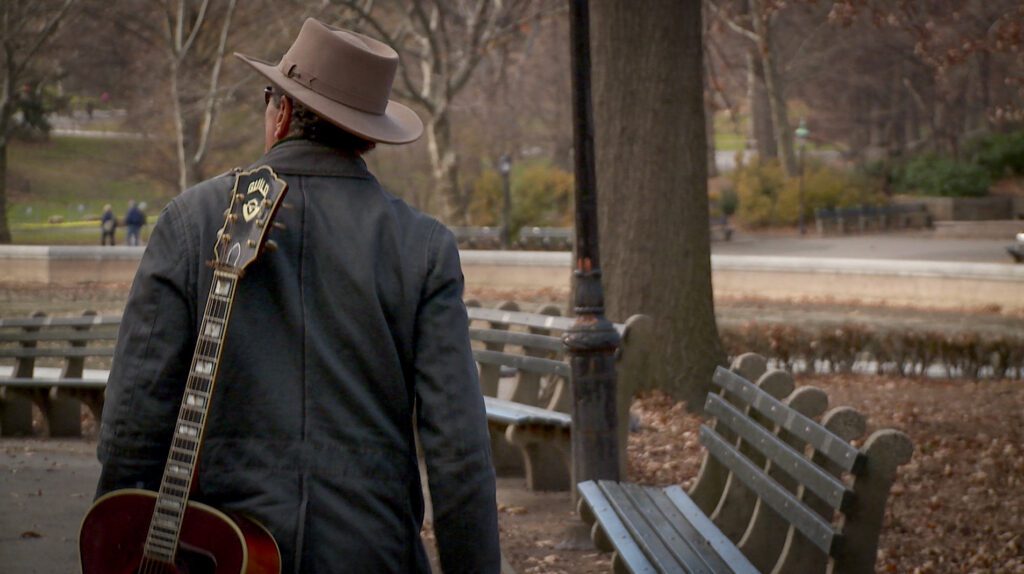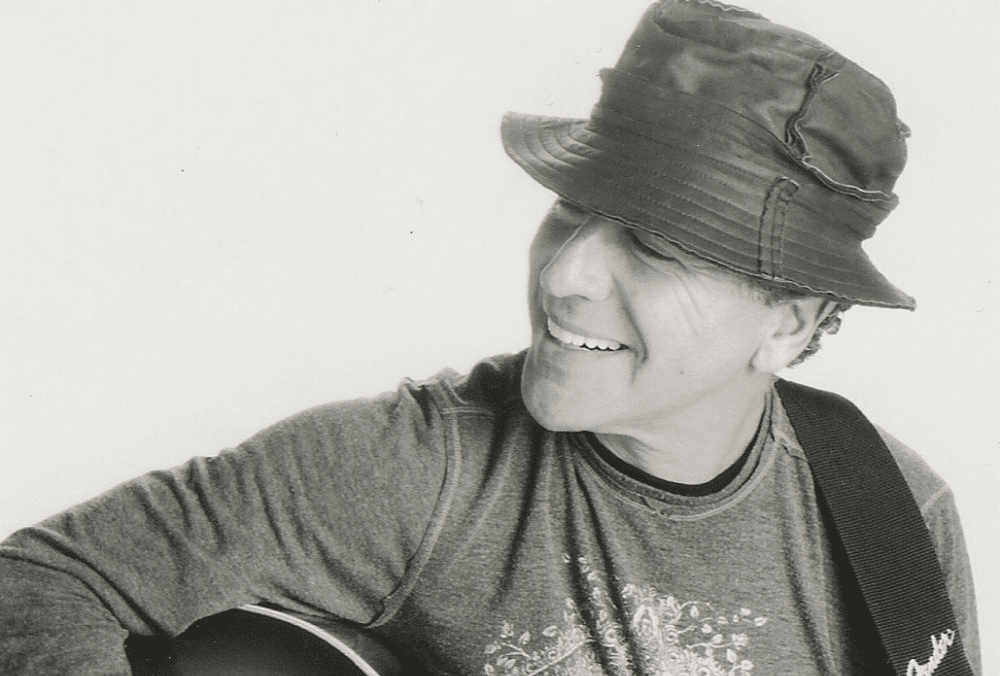Virtuoso artist Vincent Poag ’s latest album, Masquerade, is a harmonious blend of serendipitous creativity and profound experiences. Each song unfolds diverse human emotions and stories, intricately woven from a mix of spontaneous inspiration and life’s rich tapestry.
In our in-depth interview Poag reveals that his creative journey often begins with a lyrical idea, paired seamlessly with a melody, each crafted and polished to perfection, birthing songs that not only entertain but touch the soul. Drawing inspiration from his travels and the poignant solitude of the pandemic, Vincent, with no deliberate orchestration, has crafted melodies that echo the diverse and complex human experience.
- Additional Article: Sleater-Kinney Announces Upcoming Album Little Rope Alongside Haunting New Video for Lead Single “Hell”
Masquerade reflects Vincent Poag’s journey of musical and personal evolution. With a soul-stirring narrative adorned with rich lyrics and melodies, each track is a conduit of hope, thought-provocation, or a touch of emotion. Amid the echo of chords and verses, he remains a humble songwriter, weaving the intimate with the universal, resonating the virtues of freedom, equality, and decency.
Read the full interview below.
Masquerade, your latest album, has quickly become a favorite among fans. Can you tell us about the creative process and inspiration behind this record, and how it stands out from your previous works?
My creative process varies but usually starts with an idea or a particular line. More often than not, the words come first frequently with a melody. Sometimes the music comes first. Some songs flow like a faucet, others can be frustratingly stubborn. I can’t say I love the process, but I’m usually proud of the result. Some of these songs evolved from travel experiences, others were created during the pandemic.
With “Here Here Beer,” I was flabbergasted by the Eastern European countries’ love affair with beer. Their distinctive style of music and dance elicited this song. “Barcelona,” on the other hand, was inspired by the unique architectural beauty of the capital of Catalonia. This great city is one of the most artistic romantic places in the world. The people, the weather, the food, the sea; what more is there?
Many of these songs were written during the pandemic. This once in a 100-year experience affected everyone differently, in silent ways still to be evaluated. Some of these songs are an example of what can happen when we have too much time on our hands.

Each song in the Masquerade album is like a chapter in a book, unfolding different facets of human emotions and stories. Can you discuss the narrative approach you took in crafting this piece?
I’m happy to hear you think the album was choreographed. I’d like to say the way it unfolded was orchestrated, but that would be fiction. These song ideas typically came when they did, without warning or explanation as to why, when, where or how. I have no say in any of it. I work on each inspiration when it hits and strive with my team to make it the best it can be. Knowing when you’re done is not as easy as it sounds. We do strategize as to the best sequence of songs when an album is completed.
Your music, especially hits like “This Christmas” and “Stress”, is known for touching souls and offering hope. What was the emotional or message-driven impetus behind the tracks?
“This Christmas”
The Christmas season is by far my favorite. I think it brings out the best in people. We’re all constantly balancing our thoughts between our problems and appreciating what we have. The Christmas spirit somehow frees us to appreciate our blessings. For this brief moment in time each year we tend to focus on the most important things like kindness, generosity, love and family. Too bad the season is so short.
“Stress”
Stress is universal. No one goes unscathed. Sometimes poking fun and finding the humor in problems is the best therapy.
The journey from Circling Back to Masquerade is both musical and deeply personal. Can you share how your style and storytelling have evolved over these years?
Prior to my first album the only instrument I played was an acoustic guitar. Working with my brilliant conductor arranger Kathy Sommer, along with my tasteful multi talented musician/engineer Matt Anthony, exposed me to a whole new world of musical orchestration. The evolution of my songwriting probably has had more to do with the musical side of how each story is told. I think of each song as a mini-Broadway play without the benefit of the actors, theater, or visuals. It’s all ears and imagery.
Given the richness of your lyrics, it’s clear that your songs are imbued with significant meaning. How do you hope to impact your audience, both emotionally and intellectually?
Thanks for the compliment. This is a good question. I guess I’d generally like my audience to feel better than they did before listening to my songs. Music is entertainment, which is supposed to make you feel good while it takes you away. It can be a powerful tool. I would wish my songs to be a positive force, some of them hopeful, others thought provoking, and the rest to encourage a smile or touch an emotion.
Can you share some insights on a song that you feel particularly connected to and the story behind its creation?
From the age of eight, I worked in a hardware store owned by my father and his three brothers. This is where I grew up. The brothers worked long hard hours and our families socialized regularly. I didn’t appreciate how lucky I was or how unusual our family was until many years later. The values that were instilled along with the lessons learned and social skills gave me the most important education of my life. Of course, I couldn’t continue to work there for a living as I would never be overpaid.
You’ve addressed ongoing issues of politics, race, and social challenges in tracks like “AMERICA.” In the backdrop of such impactful music, how do your songs contribute to or extend these conversations, and what role do you see your releases playing in fostering unity and togetherness?
I’m just a humble songwriter hoping to write songs that resonate. I don’t profess or desire to be anything else. If a song helps someone get through the day that’s pretty awesome. “America” is personal but I’m sure it reflects the feelings of many Americans. I love America for the virtues it ideally stands for i.e. freedom, equality, decency, opportunity, and justice. I truly believe most people in the world are good and support these values. America has proven it’s possible to be powerful and morally decent. All this is being tested like never before in our country’s history. We could use a good song but need a great leader.
Listen to Vincent Poag’s music below:






